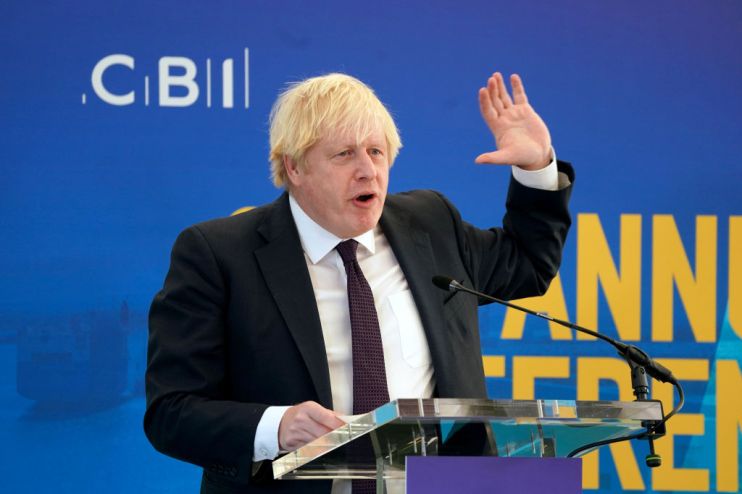Boris and the blue wall: Can the PM hold the Tories’ new electoral coalition together?

The story of Boris Johnson’s 2019 General Election landslide was the political realignment that saw swathes of traditional Labour areas turn blue across the North and the Midlands. However, Johnson’s electoral offering and tilt toward the so-called Red Wall may have had unintended consequences on the UK’s political geography.
The Conservatives under Boris Johnson are an entirely different political vehicle than recent iterations, with his policy direction and personal style jarring with many centrist Consevrative voters. Recent election results, polling and anecdotal evidence suggest there are loud rumblings of discontent in many traditional southern Tory shires. The Liberal Democrats are calling these target seats in the Home Counties the Blue Wall.
The recent Westminster sleaze scandal – sparked after the government’s botched attempt to get disgraced ex-MP Owen Paterson off the hook for breaking parliament rules on lobbying – underscores the pangs of discontent felt by many Tory voters. Johnson’s well-worn political persona of a sort of bumbling Oxford don who doesn’t quite take things seriously – Peppa Pig anyone? – may also grate on the more traditional Burkean conservatives of the Home Counties.
David Gauke, a former Tory minister and South West Hertfordshire MP, said people in and around his old stamping ground are “voters who intrinsically understand the rules and live their lives by complying with the rules”.
“They generally display traditional conservative values and virtues,” he said.
“The fact that Boris Johnson, as an individual, is not seen as someone who is an upholder of high standards, who perhaps behaves in a way that in their own professional lives wouldn’t get away with, does create a degree of unpopularity.”
The results of the Chesham and Amersham by-election in June may be a portent of things to come for the country’s natural party of government. The Lib Dems rode a wave of dissatisfaction with the government’s planning proposals, and unhappiness with the Prime Minister, to secure a 30-point swing and win the seat.
The results of May’s local elections also paint a stark picture for the Conservatives in the south. The party’s incumbent candidates lost the West England and Cambridgeshire and Peterborough mayoral elections, while also experiencing heavy losses in pockets of Cambridgeshire, Kent and East Sussex – all Tory heartlands.
Liberal Democrat MP for Richmond Park Sarah Olney believes other seats with similar demographics to Chesham and Amersham are ripe for the picking.
“The thing these kind of voters fundamentally don’t like is Boris Johnson, they don’t like the sleaze stuff, they don’t like he doesn’t keep his promises, they don’t like the fact he says one thing and does another,” Olney said.
“And while many of these people were Tory voters in the last election who said the Brexit vote needed to be respected, they nevertheless fundamentally don’t like Brexit.”
Lord Robert Hayward, Tory peer and polling expert, said there is a clear demographic shift in the South that will be hard to reconcile for the Conservatives in the long-term. He points out that large pockets of the Home Counties are now populated by more affluent, progressive voters as evidenced by the growing success of the Green Party in local elections.
Out of the seven council seats The Green Party has gained in by-elections over the past three months, six of them were previously held by Conservatives.
“The polling shows the people in these kind of areas were Remain … generally graduates, generally fairly well off and therefore are struck by a different range of issues than in the Red Wall,” he said.
Perhaps the larger dilemma for Johnson, beyond personality politics, is that he is now has to hold together a coalition of voters in the North and South that have very different priorities. Traditional Tory voters may well bristle at Johnson’s high-tax, high-spend government that has centred its domestic agenda around “levelling up” the Midlands and the North.
Gauke said the Liberal Democrats’ best shot at winning over these areas is by projecting itself as a socially liberal, economically conservative party in the wake of Rishi Sunak’s planned increases in Corporation Tax and National Insurance.
“They need to make sure there’s a message to formerly Conservative voters that they’re a serious party ready to take responsibility and that they would be an economically responsible party,” he said.
“That means they can’t just be populists or opportunists , they need to have a clear message on how the economy would prosper.”